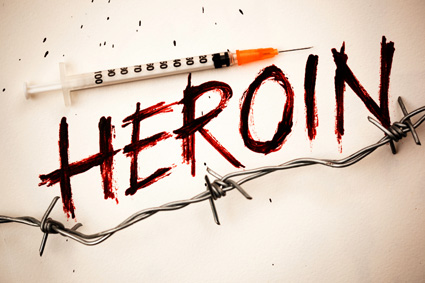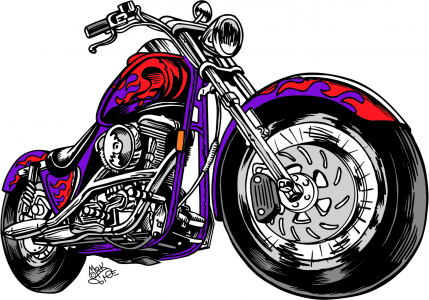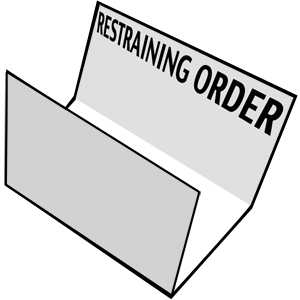Heroin on the Rise
March 21st, 2014 Heroin is a highly physiologically addictive narcotic derivative of morphine but has a higher potency than morphine. C.R. Alder Wright – an English chemistry and physics researcher in London – was the first to synthesize heroin in 1847. Heroin usually appears as a white or brown powder or as a black sticky substance, known as “black tar heroin.” The name Heroin stems from Bayer, the German Pharmaceutical Company. Bayer named the first diamorphine product Heroin and made its first fortunes in the late 1890s when it commercialized heroin as cough, cold and pain remedy.
Heroin is a highly physiologically addictive narcotic derivative of morphine but has a higher potency than morphine. C.R. Alder Wright – an English chemistry and physics researcher in London – was the first to synthesize heroin in 1847. Heroin usually appears as a white or brown powder or as a black sticky substance, known as “black tar heroin.” The name Heroin stems from Bayer, the German Pharmaceutical Company. Bayer named the first diamorphine product Heroin and made its first fortunes in the late 1890s when it commercialized heroin as cough, cold and pain remedy.
The medical use of heroin is prohibited in the United States, because its unwanted effects, i.e. miscarriages, heart infections, and death exceed its values. Heroin however is used illicitly for its euphoric effects and its use is on the rise nationwide.
In the eastern part of North Carolina, law enforcement officials report that the use of heroin, especially amongst high school students, has increased immensely as it has not been seen in decades. For example, while the Police Department of Wilmington, NC, had 12 people arrested for carrying heroin in 2003, the number was almost twenty times as high in 2013 with 214 arrests.
The surge of heroin use appears to be the unintended side effect of the crackdown on the abuse of prescription drugs. While the crackdown on the prescription drug abuse resulted in a decrease of the illegal use of prescription drugs, it also caused some medications to become less available and thereby less affordable. Instead, many turned to a less pricy solution to get euphorically high – heroin.
Even though the use of heroin is at a historic high, experts predict that it has not yet reached the top as addicts are still to some degree able to obtain prescription drugs.
As heroin use may become more prominent in the nearer future, more people may get into a situation in which they may witness a drug related overdose that requires medical assistance. In such situations, limited immunity is extended to those, who seek medical assistance pursuant to N.C.G.S. §90-96.2.
As a heroin user, one does not only face medical and economic, but also legal consequences. Heroin is a Schedule II Controlled Substance pursuant to N.C.G.S. §90-90 (1) and its possession is punishable as a Class I felony pursuant to N.C.G.S. §90-95(a)(3). The sale of heroin is punishable as a Class G felony and the delivery or manufacture is punishable as a Class H felony pursuant to N.C.G.S. §90-95(a)(1).
If convicted of any of those charges, possible consequences are:
– Fines
– Jail or prison time
– Drug treatment/counseling
– Probation
– Difficult bread-winning
– Social stigma
– Permanent criminal record
If you or somebody you know are investigated or have been arrested or charged with a drug crime, you should seek legal counsel to examine all evidence and advise you as to whether accepting a plea deal or going to trial would be in your best interest.
If accepting a plea deal, participation in the Drug Treatment Court (hereinafter DTC) may be considered which is an intensive, highly structured program designed to identify and treat offenders whose criminal activities are generally related to substance abuse offered in 23 counties in North Carolina. Amongst those 23 counties are New Hanover and Brunswick County. In order to qualify for the participation in the DTC, the offender must:
- be addicted to a chemical substance,
- be willing to volunteer for the drug treatment court program, and
- be eligible under the state’s structured sentencing system for a community or intermediate punishment as an alternative to active prison time.
The mission of the DTC is to break the cycle of drug addiction by offering the tools to stay clean. Amongst others, those tools include counseling, housing, school, and employment assistance.
At Collins Law Firm we handle drug charges in New Hanover, Brunswick, and Pender County, and we have successfully defended clients against all types of drug crimes. The experienced team at Collins Law Firm is here for you – just a phone call away at ![]()
![]() 910-793-9000
910-793-9000 910-793-9000 .
910-793-9000 .
By Jana H. Collins, Office Manager

 The New York Times recently published a story entitled “Driving Under the Influence, of Marijuana.” The story suggested that driving under the influence of marijuana (pot) is much less risky than driving while impaired by alcohol. The report also indicated that it is difficult to detect impairment by pot with the standardized field sobriety tests used in DWI by alcohol cases, and it is difficult to confirm impairment with laboratory tests. The article discusses several studies making these findings and noted the conclusion of some experts that public resources would be better spent combating alcohol-impaired driving, including perhaps lowering the per se threshold for alcohol concentrations to 0.05, than in establishing a per se limit for blood-THC content or devising roadside tests to detect for marijuana impairment.
The New York Times recently published a story entitled “Driving Under the Influence, of Marijuana.” The story suggested that driving under the influence of marijuana (pot) is much less risky than driving while impaired by alcohol. The report also indicated that it is difficult to detect impairment by pot with the standardized field sobriety tests used in DWI by alcohol cases, and it is difficult to confirm impairment with laboratory tests. The article discusses several studies making these findings and noted the conclusion of some experts that public resources would be better spent combating alcohol-impaired driving, including perhaps lowering the per se threshold for alcohol concentrations to 0.05, than in establishing a per se limit for blood-THC content or devising roadside tests to detect for marijuana impairment.

 ”Let it snow, let it snow, let it snow” is the chant all the New Hanover County kids are chanting this morning as they await their winter wonderland. In anticipation of inclement weather New Hanover, Pender, Brunswick, Columbus, Bladen, and other surrounding counties have all cancelled school today and will probably do the same for tomorrow. In addition to schools being cancelled, many courts are closed as well.
”Let it snow, let it snow, let it snow” is the chant all the New Hanover County kids are chanting this morning as they await their winter wonderland. In anticipation of inclement weather New Hanover, Pender, Brunswick, Columbus, Bladen, and other surrounding counties have all cancelled school today and will probably do the same for tomorrow. In addition to schools being cancelled, many courts are closed as well. It comes time for another holiday weekend in Wilmington, NC as we celebrate a weekend full of activities and events to help celebrate Martin Luther King Jr. Day on Monday, January 20th, 2014. Thanks to the M.L.K Celebration Committee and their sponsors, these activities continue to be an important educational and community building event here in Wilmington and Southeaster North Carolina.
It comes time for another holiday weekend in Wilmington, NC as we celebrate a weekend full of activities and events to help celebrate Martin Luther King Jr. Day on Monday, January 20th, 2014. Thanks to the M.L.K Celebration Committee and their sponsors, these activities continue to be an important educational and community building event here in Wilmington and Southeaster North Carolina.  North Carolina is fortunate to be the hot spot to many tourists because of it’s southern beaches, historical sites, and beautiful landscape. Another attraction that North Carolina is naturally endowed with are some of the greatest motorcycle rides in America that attract bikers from all over. A popular one on the Eastern side of North Carolina is the Topsail Loop ride- which travels from Jacksonville NC to Topsail NC passing over the Atlantic Intracoastal Waterway and traveling through Surf City, NC. With an increase of bikers on the roads, North Carolina decided to pass a new motorcycle safety law, to be effective October 1st, 2013, which will increase penalties for unsafe movements by drivers that threaten the property and safety of motorcyclists. This law, titled the Motorcycle Safety Act, which will change the reading of G.S. 20-154 to read as rewritten:
North Carolina is fortunate to be the hot spot to many tourists because of it’s southern beaches, historical sites, and beautiful landscape. Another attraction that North Carolina is naturally endowed with are some of the greatest motorcycle rides in America that attract bikers from all over. A popular one on the Eastern side of North Carolina is the Topsail Loop ride- which travels from Jacksonville NC to Topsail NC passing over the Atlantic Intracoastal Waterway and traveling through Surf City, NC. With an increase of bikers on the roads, North Carolina decided to pass a new motorcycle safety law, to be effective October 1st, 2013, which will increase penalties for unsafe movements by drivers that threaten the property and safety of motorcyclists. This law, titled the Motorcycle Safety Act, which will change the reading of G.S. 20-154 to read as rewritten: Year after year during the Thanksgiving holiday period we experience one of the most travel heavy times of the year. This year a large storm threatens our Thanksgiving holiday travel and may require a lot of patience while on the roads.
Year after year during the Thanksgiving holiday period we experience one of the most travel heavy times of the year. This year a large storm threatens our Thanksgiving holiday travel and may require a lot of patience while on the roads. In just a few weeks a new law will be going into effect in North Carolina called “The Hassani N. Wesley Students’ School Bus Safety Act.” This act was passed earlier this year, but is scheduled to come into effect on December 1st, 2013. This bill will ultimately create harsher penalties for North Carolina drivers who illegally pass school buses.
In just a few weeks a new law will be going into effect in North Carolina called “The Hassani N. Wesley Students’ School Bus Safety Act.” This act was passed earlier this year, but is scheduled to come into effect on December 1st, 2013. This bill will ultimately create harsher penalties for North Carolina drivers who illegally pass school buses. A restraining order or a protective order is a court order, that is a form or an injunction, that requires a party (a person) to do, or to refrain from doing, certain things. A party that refuses to comply with an order may face criminal or civil penalties, and may be ordered to pay damages or be subject to other sanctions such as a term of imprisonment. If a person violates the terms of a court order, they could be in serious criminal trouble and possibly face jail time.
A restraining order or a protective order is a court order, that is a form or an injunction, that requires a party (a person) to do, or to refrain from doing, certain things. A party that refuses to comply with an order may face criminal or civil penalties, and may be ordered to pay damages or be subject to other sanctions such as a term of imprisonment. If a person violates the terms of a court order, they could be in serious criminal trouble and possibly face jail time.